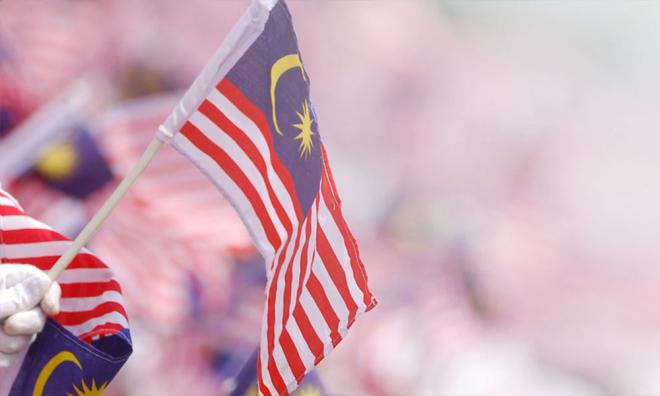
Published by The Malaysian Insight, Malay Mail & The Sun Daily, image from Malaysian Must Know The Truth.
Malaysia’s current political situation is plagued with self-interest, showing little personal independence and unity – an antithesis to the spirit of “Merdeka”.
Externally, Malaysia is reliant on other countries for critical vaccines and medicines, security, technology, economy, and food security.
These internal regressions, external dependencies and increasing territorial threats question the depth of Malaysia’s “Merdeka” status and even its sovereignty.
“Merdeka” should not be limited to a memorial of Malaysia’s independence from the physical occupation and colonisation of the British Empire – one-dimensional and historical.
More importantly, it should mean prioritising national interests and the liberation of the mind and the heart from self-serving motives and harmful desires.
Tunku Abdul Rahman, Tan Cheng Lock and V.T. Sambanthan demonstrated unity that is severely lacking in Malaysia’s current political landscape.
Race-based politics has taken deep roots in the political culture, wielded as tools to sway votes in what is simply seen as a game of numbers.
Against the backdrop of an economic and health crises, there appears to be a severe occupation with politicking for the sake of personal endeavours, and increased tendencies to launch new parties or political platforms – ignoring the severe impact of divisive politics while thinking that a party’s aims and visions of transformations should come before unity and stability.
The ordinary Malaysians who are struggling day to day need political and economic stability but are instead being sickened to the core with what appears to be a game riddled with hypocrisy, schemes, back-stabbing, back-door surprises, tiresome accusations of sexual orientations and misconducts and many more.
It is politics deep in the toxicity of personal desires and untameable hatred, yet shallow in principles and values – immature even after six decades of “Merdeka”.
Of course, there are rare gems among Malaysia’s leadership that do not fit into the description above. Malaysians have observed selfless acts from some of the nation’s leaders in stepping up and save Malaysia in times of political, economic, and health crises, but Malaysians wonder if the rest of the would-be “leaders” – the opportunists and fickle bunch – have truly freed their minds from the occupation of self-interest?
Are our politicians truly “Merdeka” in mind, body, and soul?
As lawmakers were quick to capitalise on the auditor-general’s report to find the fault of the other side of the table, this is a call for the politicians to audit themselves and realign their moral compass.
Now let’s have a glimpse of some indicators of Malaysia’s external “independence”, starting with Covid-19, which has highlighted several worrying aspects concerning our readiness to face a global crisis.
Malaysia’s healthcare leadership and professionals have shown world-class capabilities handling Covid-19, but future pandemics by more virulent and more lethal strains can happen during times of severe geo-political battle.
Not a far-fetched scenario when two of the world’s major sources of potential Covid-19 vaccines and also Malaysia’s biggest trading partners – China and the US – are embroiled in ever escalating trade war.
If Malaysia’s “science diplomacy” is challenging now, how effective will it be when it tries to knock on other countries’ door to ask for vaccines or antidotes during times of biological warfare?
“Look-East” or “look-West” policies would not work in such times. It’s imperative to “look-within” and “look-everywhere else”.
This is a wake-up call on Malaysia’s readiness against future pandemics and conflicts. The need to end the crippling economic and health crises can be used to bend the will of a nation’s leadership. It’s an issue of independence and sovereignty.
Though it may be too late to join the race for the development of commercial-scale vaccines for Covid-19, there are indications that Malaysia’s leadership in healthcare have realised the seriousness of the issue.
Deputy director-general of health, Dr Hishamshah Ibrahim, said it is worth investing in the long term for the development of domestic vaccine expertise and that plans for a National Vaccine Centre are being revisited.
It’s thus crucial to establish inter-ministerial task force to ensure Malaysia is able to face future pandemics and defend against conflicts, such as chemical and biological warfare.
The issue of independence extends itself into the realm of technology – which is major part of the trade war – as we continue to rely on core technologies from other countries.
Taking digital technology as an example we can observe the delicate balancing act with China’s Huawei during Dr Mahathir Mohamad’s second prime ministership, and currently with US-based major tech firms when Microsoft, Amazon and Google expressed their interest to Prime Minister Muhyiddin Yassin in developing Malaysia into an information technology regional hub.
As a small trading nation, our leaders have done well to remain neutral.
We also have to look externally towards strengthening new blocs of economy and technology to provide other significant avenues for Malaysia and its peers to trade, diversify sources for healthcare and digital technologies, and through collaborative R&D and technology transfer become not only a value-added technology user but also a producer as well.
Some good examples include Asean call for the sharing of data to support Covid-19 vaccine development, and the call to purchase Covid-19 vaccine as a bloc by Foreign Minister Hishammuddin Hussein to increase purchasing power and, therefore, its availability for the region.
Digital transformation and the embrace of the fourth industrial revolution (4IR) hold the promise of a borderless world and a de-concentration of power yet, remaining as mere consumer of technology threatens Malaysia’s digital autonomy in the long run.
The same shift in strategy is also required in energy security and food security. According to experts, energy security issue in Malaysia revolves around an overdependence on depleting fossil fuel resources and increasing energy import to meet increasing energy demand – a challenging position towards energy self-sufficiency.
As for food security, although a cabinet committee on National Food Security Policy has been set up, Agriculture and Food Industries Minister Ronald Kiandee acknowledged the need to improve supply of food from the position of security.
Full self-sufficiency and total independence on all aspects may not be realistic nor practical, but inter-dependence among trading countries is a better strategy than over-reliance. The former segregates power, while the latter concentrates it.
Malaysia, therefore, must be “Merdeka” not only in all aspects of the real world, but most importantly also in cyberspace.
Ahmad Ameen Mohd Kamal is Head of Science and Technology at EMIR Research, an independent think tank focused on strategic policy recommendations based on rigorous research.

